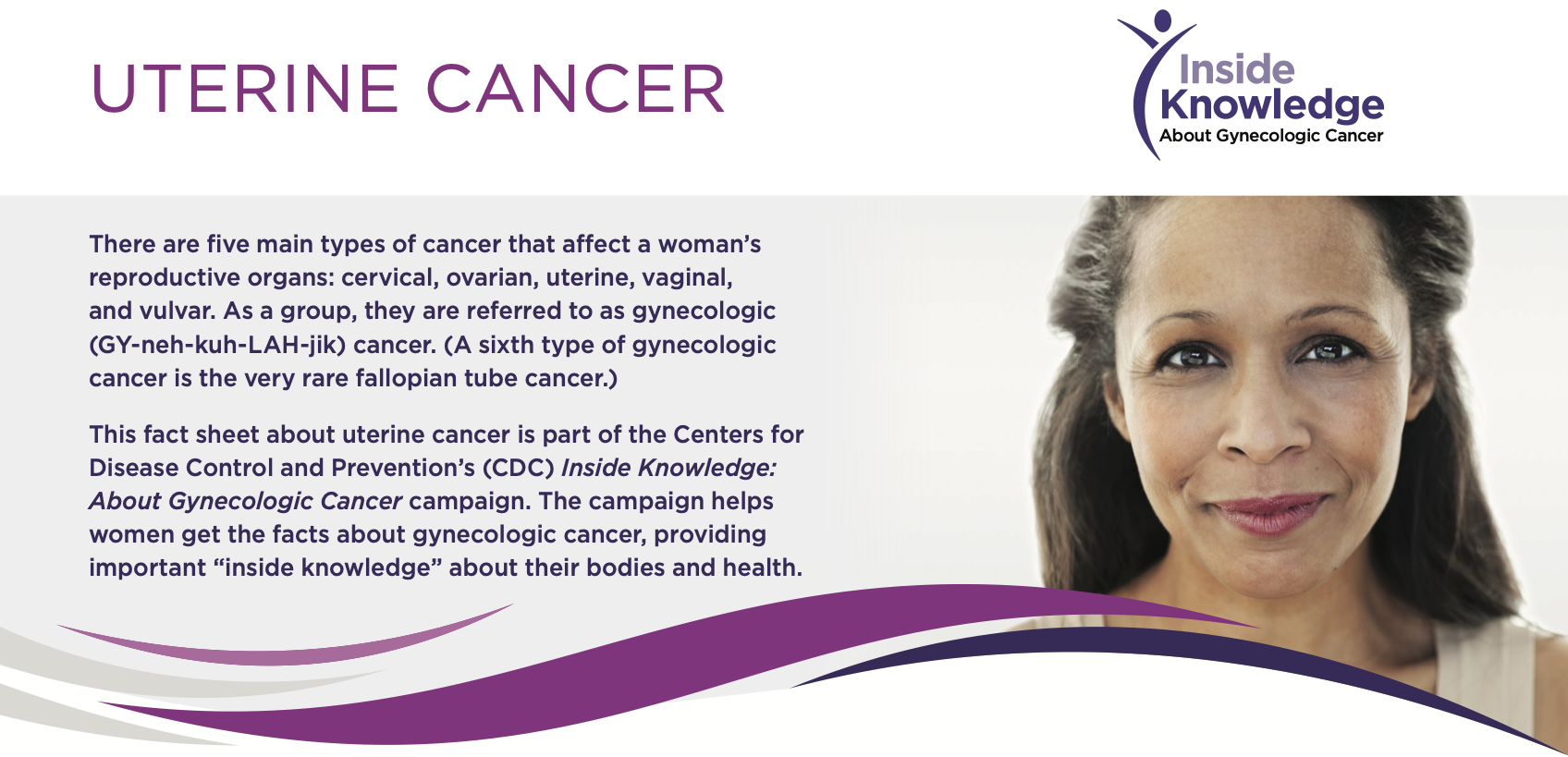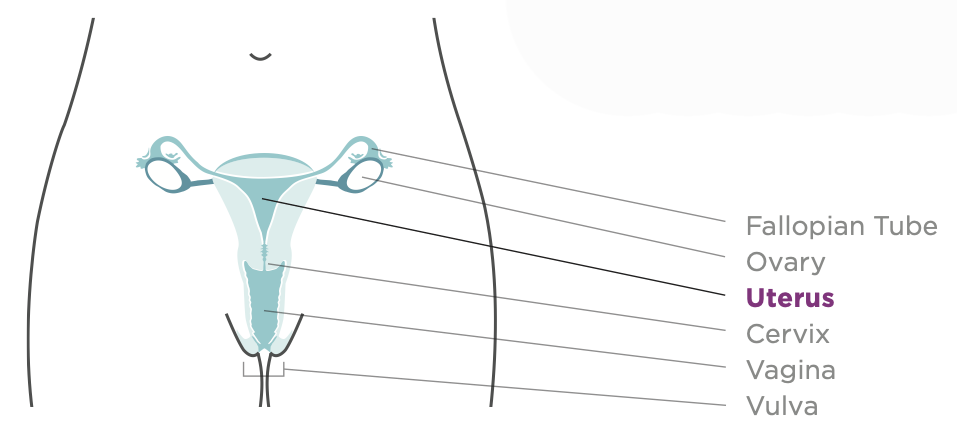
What is uterine cancer?
Cancer is a disease in which cells in the body grow out of control. Cancer is always named for the part of the body where it starts, even if it spreads to other body parts later. When cancer starts in the uterus, it is called uterine cancer. The uterus is the pear-shaped organ in a woman's pelvis (the area below your stomach and in between your hip bones). The uterus, also called the womb, is where the baby grows when a woman is pregnant. The most common type of uterine cancer is also called endometrial cancer because it forms in the lining of your uterus, called the endometrium.

Who gets uterine cancer?
All women are at risk for uterine cancer, and the risk increases with age. Most uterine cancers are found in women who are going
through, or who have gone through menopause-the time of life when your menstrual periods stop.
What are the signs and symptoms of uterine cancer?
Signs and symptoms of uterine cancer include:
• Vaginal discharge that is not normal for you.
• Abnormal vaginal bleeding - The bleeding may be abnormal because of how heavy it is or when it happens, such as bleeding
after you have gone through menopause: bleeding between periods: or any other bleeding that is longer or heavier than normal
for you.
• Pain or pressure in your pelvis - Pay attention to your body, and know what is normal for you. If you have vaginal bleeding that is not normal for you, see a doctor right away. If you have any of the other signs and they last for two weeks or longer, see a doctor. These symptoms may be caused by something other than cancer, but the only way to know is to see your doctor.
What raises a woman's chance of getting uterine cancer?
There is no way to know for sure if you will get uterine cancer. Some women get it without being at high risk. However, the following factors may increase a woman's risk for uterine cancer:
• Being older than 50.
• Being obese (having a high, unhealthy amount of body fat).
• Taking estrogen by itself for hormone replacement during menopause (without also taking the other female hormone,
progesterone).
• Having had trouble getting pregnant, or fewer than five periods in a year at any time in your life before starting menopause.
• Taking Tamoxifen, a drug used to treat certain types of breast cancer.
• Having people in your family with a history of uterine, colon, or ovarian cancer.
If one or more of these things is true for you, it does not mean you will get uterine cancer. But you should speak with your doctor to see if he or she recommends more frequent exams.
How can I prevent uterine cancer?
There is no known way to prevent uterine cancer. But these things have been shown to lower the chance of getting uterine cancer:
• Using birth control pills.
• Maintaining a healthy weight and being physically active.
• Taking progesterone (the other female hormone) if you are taking estrogen to replace hormones during menopause.
Are there tests that can find uterine cancer early?
The Pap test does not screen for uterine cancer. The only cancer the Pap test screens for is cervical cancer. Routine testing for uterine cancer is not recommended for women who have no symptoms. This is why you need to know the signs of uterine cancer and see your doctor if you have any of them.
If you think you may be at high risk for uterine cancer, talk with your doctor about whether there are tests you should have and how often you should be checked.
If you have symptoms or are at high risk for uterine cancer, your doctor may perform an endometrial biopsy or transvaginal ultrasound. Your doctor may be able to do these tests in his or her office, or may refer you to another doctor.
What should I do if my doctor says I have uterine cancer?
If your doctor says that you have uterine cancer, ask to be referred to a gynecologic oncologist-a doctor who has been trained to treat cancers like this. This doctor will work with you to create a treatment plan
